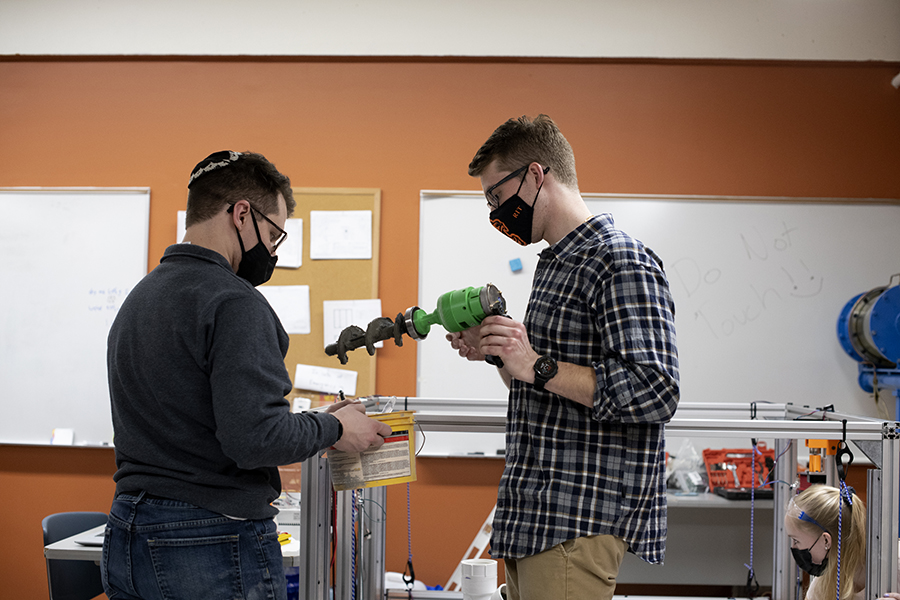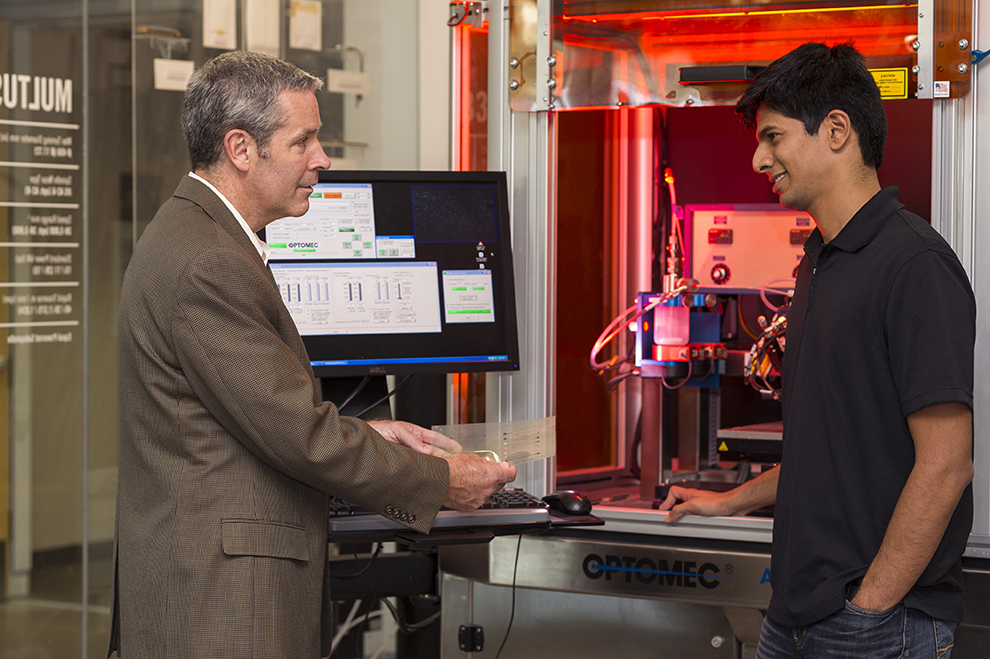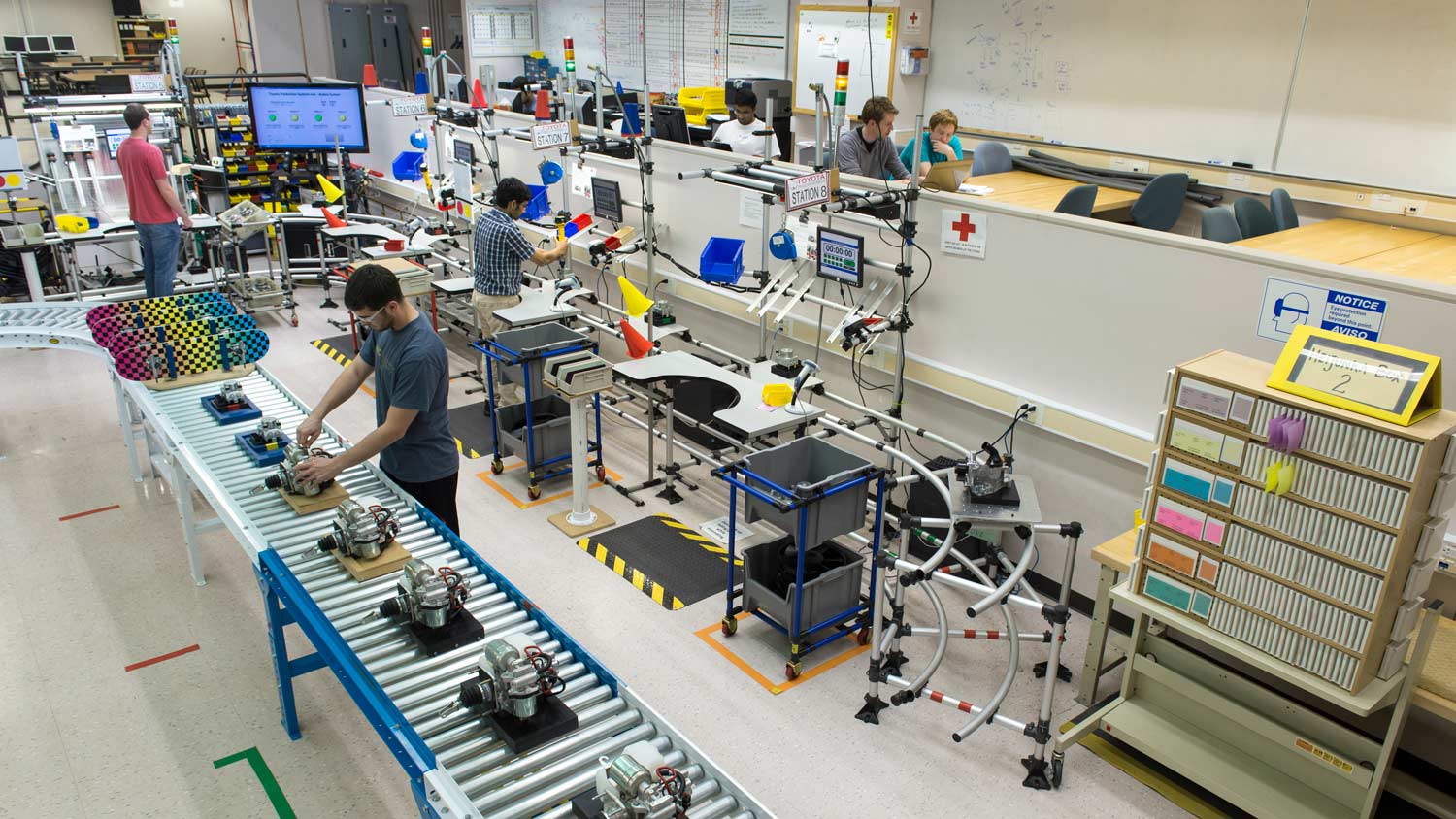Industrial and Systems Engineering Master of Engineering Degree


Industrial and Systems Engineering
Master of Engineering Degree
- RIT /
- Rochester Institute of Technology /
- Academics /
- Industrial and Systems Engineering ME
Request Info about graduate study
Visit
Apply
Department of Industrial and Systems Engineering
Optimize integrated systems of people, materials, information, equipment, and energy by improving your skills in statistics, engineering, operations, manufacturing, and more.
Overview for Industrial and Systems Engineering ME
The master of engineering in industrial and systems engineering focuses on the design, improvement, and installation of integrated systems of people, materials, information, equipment, and energy. The program emphasizes specialized knowledge and skills in the mathematical, physical, computer, and social sciences together with the principles and methods of engineering analysis and design. The overarching goal of industrial and systems engineering is the optimization of the system, regardless of whether the activity engaged in is a manufacturing, distribution, or a service-related capacity. Students graduate with a variety of skills in the areas of applied statistics/quality, ergonomics/human factors, operations research/simulation, manufacturing, and systems engineering.
This program is no longer accepting new student applications.
Admissions and Financial Aid
This program is available on-campus only.
| Offered | Admit Term(s) | Application Deadline | STEM Designated |
|---|---|---|---|
| Full‑time | Fall/Spring | Rolling | Yes |
Full-time study is 9+ semester credit hours. International students requiring a visa to study at the RIT Rochester campus must study full‑time.
Application Details
To be considered for admission to the Industrial and Systems Engineering ME program, candidates must fulfill the following requirements:
- Complete an online graduate application.
- Submit copies of official transcript(s) (in English) of all previously completed undergraduate and graduate course work, including any transfer credit earned.
- Hold a baccalaureate degree (or US equivalent) from an accredited university or college.
- A recommended minimum cumulative GPA of 3.0 (or equivalent).
- Submit a current resume or curriculum vitae.
- Submit a personal statement of educational objectives.
- Submit two letters of recommendation.
- Entrance exam requirements: GRE
- Writing samples are optional.
- Submit English language test scores (TOEFL, IELTS, PTE Academic), if required. Details are below.
English Language Test Scores
International applicants whose native language is not English must submit one of the following official English language test scores. Some international applicants may be considered for an English test requirement waiver.
| TOEFL | IELTS | PTE Academic |
|---|---|---|
| 90 | 6.5 | 58 |
International students below the minimum requirement may be considered for conditional admission. Each program requires balanced sub-scores when determining an applicant’s need for additional English language courses.
How to Apply Start or Manage Your Application
Cost and Financial Aid
An RIT graduate degree is an investment with lifelong returns. Graduate tuition varies by degree, the number of credits taken per semester, and delivery method. View the general cost of attendance or estimate the cost of your graduate degree.
A combination of sources can help fund your graduate degree. Learn how to fund your degree
Latest News
-
December 12, 2023
![college student using a touchscreen in an engineering lab.]()
'FLAME' workshop at RIT connects students with job opportunities
WROC-TV features the Finger Lakes Advanced Manufacturing Education workshop, held at RIT's Brinkman Lab.
-
October 2, 2023
![Professional headshots of Katie McConky on left and Brian Landi on right.]()
Kate Gleason College of Engineering appoints two new department heads
Brian Landi and Katie McConky have been named department heads of the chemical engineering and industrial and systems engineering programs in the college. Both bring extensive teaching, research, and company experience to the academic leadership positions in the engineering college.
-
June 13, 2023
![A Cognex camera set up over an assembly line.]()
L3Harris Delivers Advanced Manufacturing Equipment to RIT
Next-generation manufacturing tools provide engineering students hands-on experience with the equipment used in real-life production processes.



















